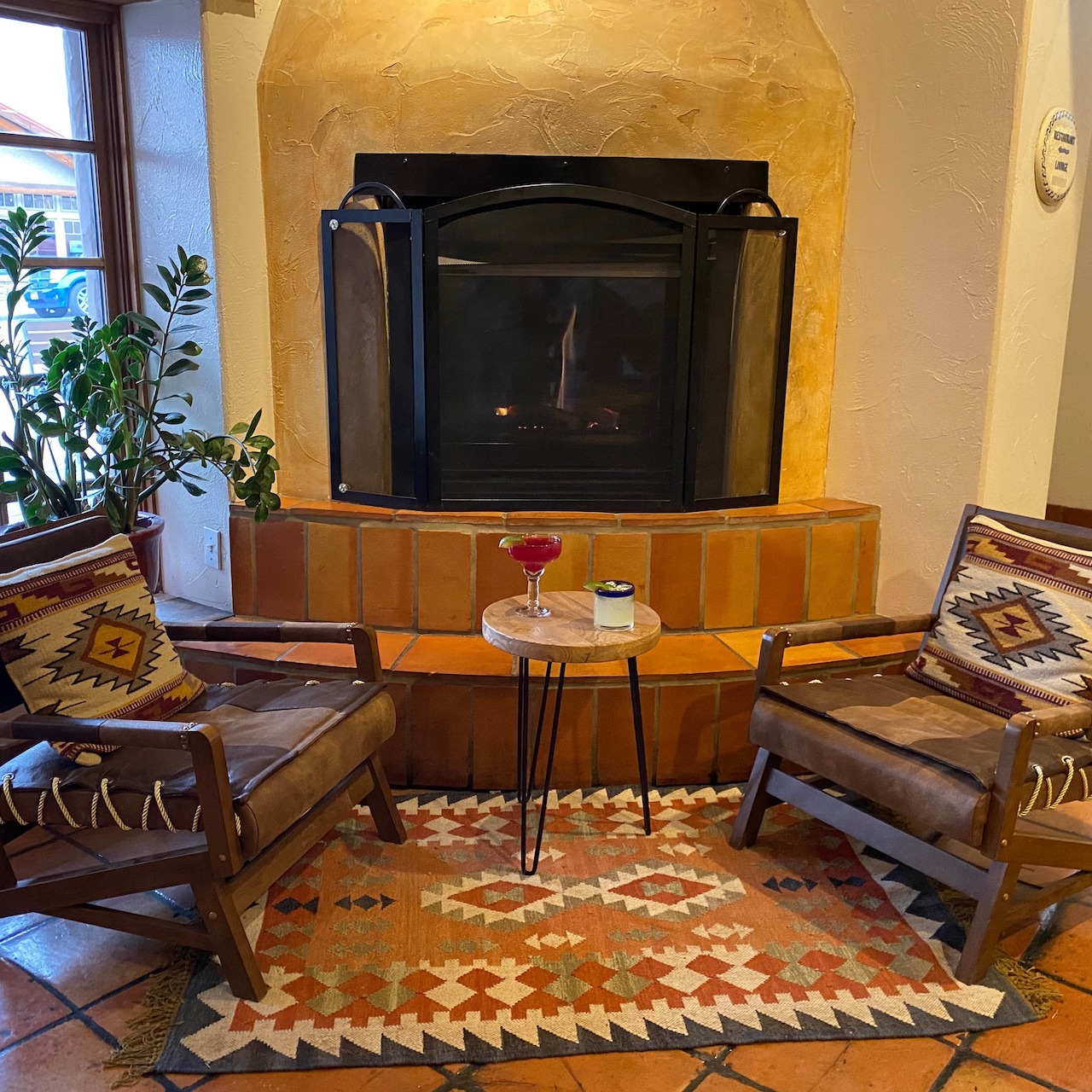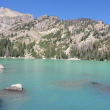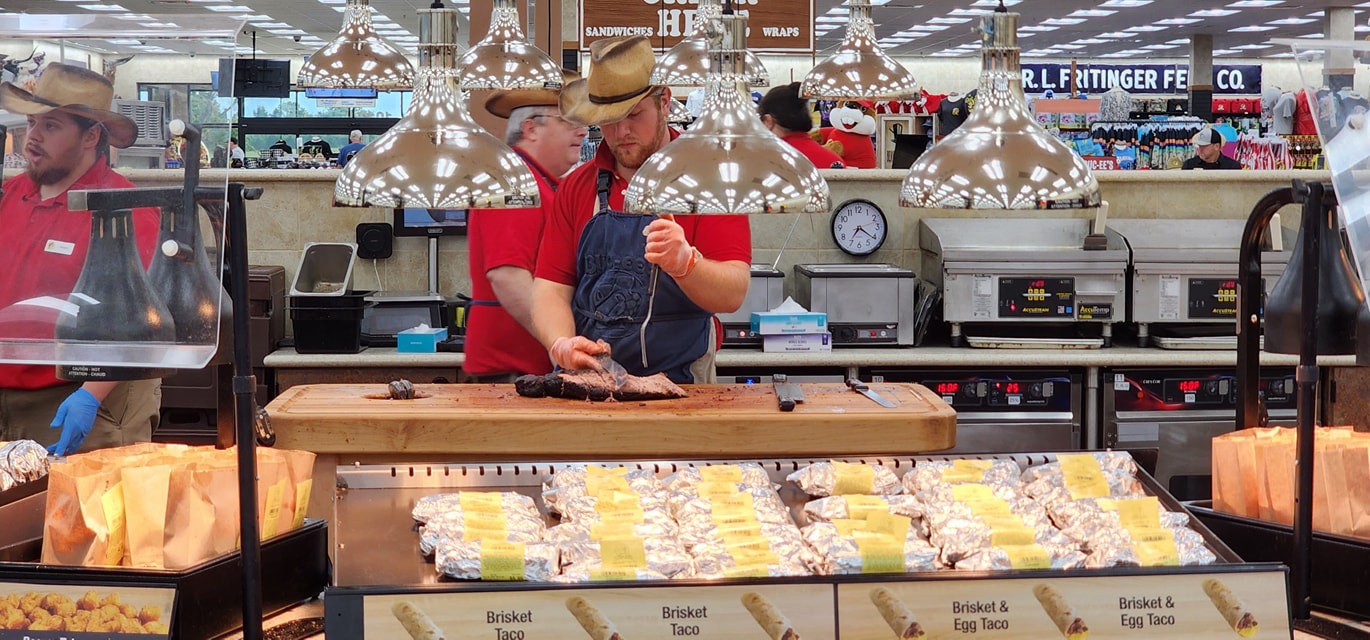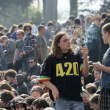As civil unrest presses, many inclusivity-centered questions keep surfacing in all industries, like the beauty and fashion sectors. A few of these questions focus on how these majorly profitable industries, like beauty and makeup lines, fail to provide inclusive opportunities to Black, Indigenous and artists of color.
Earlier this year, Harper’s Bazaar writer Leah Faye Cooper discussed how “The Fashion Industry Has Failed Black People,” where she interviewed four prominent leaders in the fashion industry and discussed discrimination, inclusivity and racism. “Collectively, we’re tired of the systematic disenfranchisement that exists within the fashion industry, tired of not seeing any Black people in executive roles, tired of being tokenized, tired of being undervalued,” Cooper wrote.
Similar to that article, 303 Magazine discussed the local makeup scene with Bridgette Black, Jasmine Garcia and Tatiana Workman — all of whom are local BIPOC makeup artists and prevalent women in the beauty and fashion industries.
READ: Models in Denver Speak About Racial Biases in the Fashion Community
In both industries, these four artists and many others want to see action to ensure a wide array of makeup shades and to ensure that BIPOC makeup artists are accessible during photo shoots, runway shows and marketing campaigns for participating models.

303 Magazine: What is it like as a Black makeup artist in the beauty industry in Denver?
Bridgette Black: I count my experience being a Black makeup artist as all joy, not ever easy but joyous all the same. I find that daily I’m challenged with crossing cultural barriers, showcasing my skill and expertise on any person with any skin tone, at any age. There’s an unspoken preconceived notion that black makeup artists only do melanated faces, and that’s simply untrue. Everyone is welcome in my chair.
Tatiana Workman: My time as a Black makeup artist in Denver has been a beautiful and rewarding experience. I began my journey as a MAC makeup artist at a local mall. I was able to meet so many people from diverse backgrounds which helped me broaden my skills. In my years at MAC I was able to travel to different states, teach classes and meet some of the most talented makeup artists. When I decided to branch off as a freelance artist, I started off as a bridal MUA. Traveling to Vail, Estes Park, Telluride, Cancun, Florida and Vegas just to name a few places. I was featured in the Denver RAW Fashion Show in 2018, which was the highlight of my career. I’ve begun to network with many local photographers to build my fashion and beauty portfolio. I’d definitely love to be involved in Denver Fashion Week and more once the world goes back to normal.
303: Describe your experience as a makeup artist of color in the beauty industry in Denver.
Jasmine Garcia: You know growing up in Denver — born and raised here — I’ve seen many things change. Some in a positive way, some in a negative way. Two years ago you didn’t see as many POC makeup artists in Denver going out there and doing what they love (take me for example). I started doing makeup back in October of 2018. I had fallen into depression and my group leader at the time had told me I needed to do something to take my mind off things, keep me busy. I’ve always been into makeup even as a little girl, so I thought why not start doing Halloween looks for fun. Not even two weeks in I started getting the recognition I deserved and honestly, I never felt discriminated for being a woman of color, but I did feel discouraged for not having so many other POC just like me in the beauty industry.
Fast forward to now — I see so many people determined and passionate about their work and talent they have which is being a skilled artist. Someone who not only does makeup, but art in general! I didn’t realize until a couple of months ago that people will judge you off of anything nowadays though. It wasn’t like it was two years ago to me. Personally, I feel like the Denver community is lacking the support system and love we need for the small POC businesses that can use the commission. As long as I know I’m putting in work I know something great will happen with time though, you just got to trust the process one step at a time.
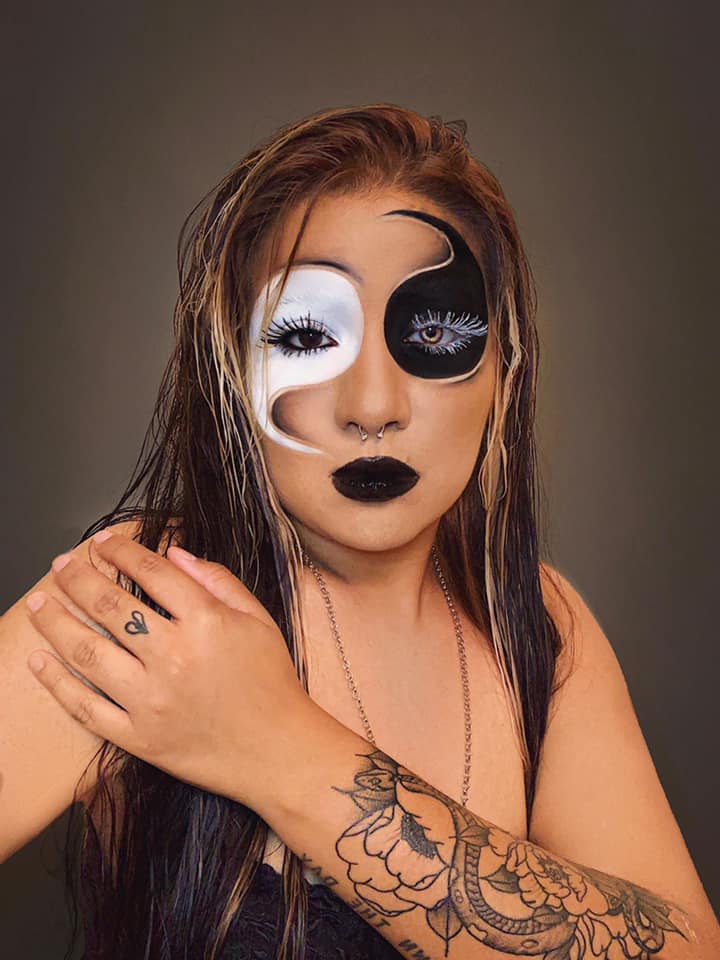
303: All too often, Black women and men in the fashion industry are not provided artists that are skilled with diverse hair types and skin color. What has been your experience with that? What have you noticed while being involved in the industry? How can this issue be resolved?
BB: Truthfully I’ve noticed that these types of opportunities aren’t often presented to Black makeup artists in the Denver community. There are plenty of us out here to remedy this issue but somehow the jobs are being presented and given to those without the skills to execute them. This can be remedied by offering the chance to be on set to more than those within the beauty cliques. That doesn’t necessarily mean just give the job to a Black makeup artist, definitely give the opportunity to the one with the most qualified artistic prowess, but you might find they are one and the same.
TW: Typically I work with photographers or fashion brands that cater to people of color. Sadly, it’s rare that non-Black fashion brands or photographers reach out to me to be included as talent on set, even if they are shooting with all people of color. Sometimes this is discouraging but it does give non-Black artists a chance to diversify their skills. I’d love to see the industry broaden their talents on set by utilizing hairstylists, make-up artists and fashion stylists from diverse backgrounds. I believe diversifying a fashion set would bring an abundance of creative ideas.
JG: Personally coming from a Latina/Black background it tends to get frustrating seeing ads on social media, on TV, or even at the stores of a makeup product that “says” it’s diverse and works with all skin tones and then coming to find out that it’s not what you expected. No companies will be mentioned, but I have seen some makeup brands photoshop their ads of white models and make them look like they have a darker complexion so that way their fan base and buyers will be more engaged and want to buy the product when in reality it’s a hoax. I never had to deal with something like that personally, but it must be tiring trying to become a successful model in the fashion industry and companies shutting you down because of the color of your skin or the way your hair is textured because you don’t make the “right fit.” If we came together and spoke up about the situation, which I have to say — I finally do see so many powerful artists using their voice as a sign of dignity to contribute and show other artists that their voice matters as well. Every voice matters, we need to stand up — not stand out when it comes to situations like this.
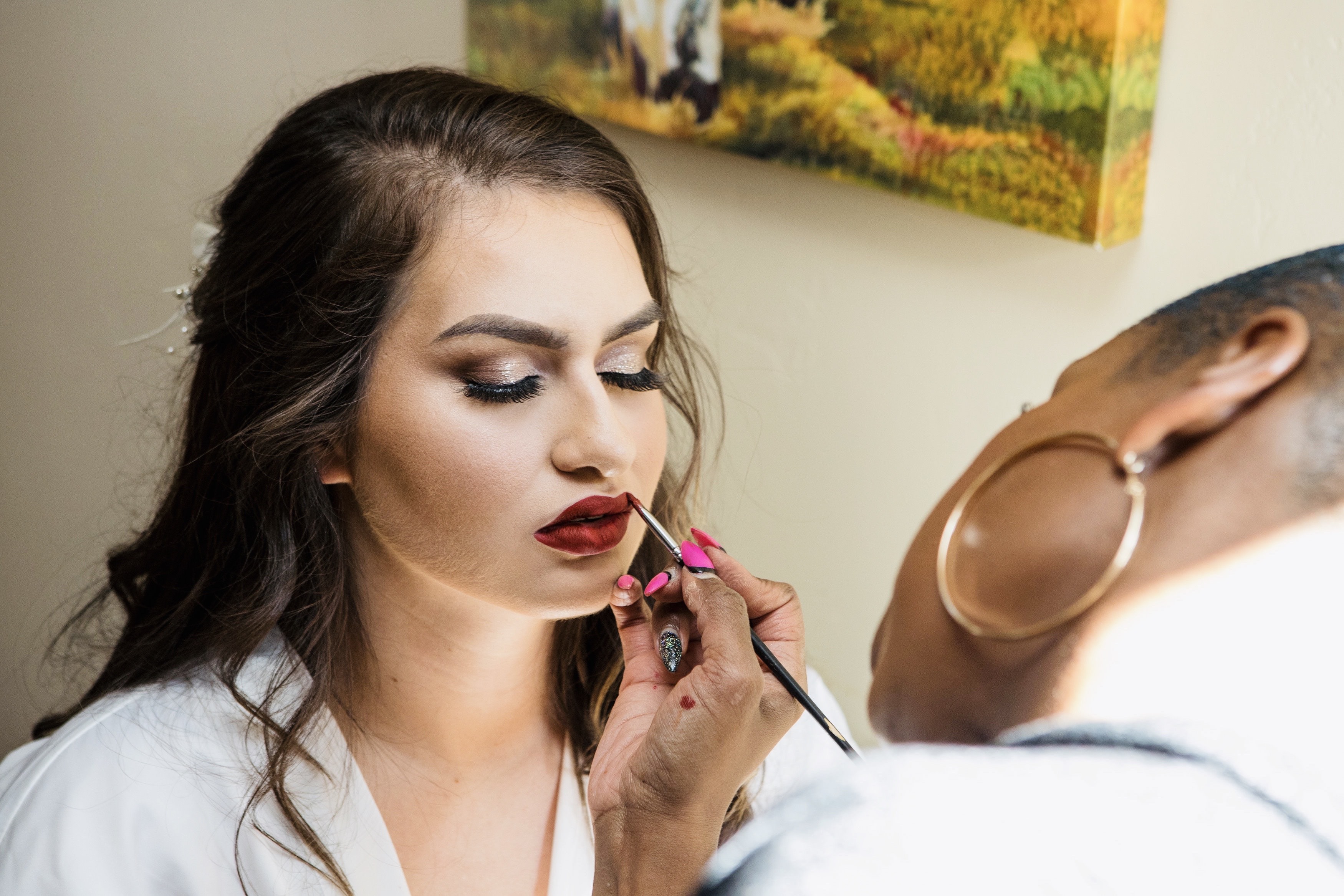
303: What tools and products do you carry in your kit at all times to ensure a diverse range of skin tones and hair types are met?
BB: I make sure to carry the fairest and deepest shades of concealer and foundations, with a few variations in undertones to make sure I can mix and create the perfect shade for the client. It’s also important to know what products to use for what situations, to take into account atmosphere, flashback from photography, the longevity of the product … Truthfully there are so many mitigating factors and true professionals will not be intimidated by anything that arises.
JG: Usually when I have an appointment with a client I tend to ask ahead of time you know, “what shade are you, more of cooler shade or warmer shade?” That question alone helps me figure out what foundations and concealers to bring with me. I have many foundations, maybe like 50 [or more]. So the variety is endless for me! Sometimes I even have clients who like to supply their own foundation just for personal preference. Everything else —for example, bronzers and blushes — I usually bring multiple ones with me just in case a client doesn’t like that certain shade on them. As for hair, I don’t usually work on hair, but when I do I have a whole separate bag for that. I carry everything from a straighter, to Eco gel, olive oil hair lotion, Shine ‘N Jam and brushes. Either way, I am usually always set and ready to do makeup/hair on any person without a problem because I make sure I carry everything I need.
TW: A makeup artist kit is a magical wonderland filled with so many products. I’d like to say my holy grail items are MAC Fix Fluid Liquid Foundation which comes in over 20 shades and suits deep undertones flawlessly. Fix Fluid photographs like a dream, without leaving a gray cast when flashed on deeper skin. Another item I refuse to travel without is Mac Fix+ finishing spray … Clear lip gloss is a must, believe it or not, it can be used for a gloss lip, a wet eye look and can be mixed with blushes or shadows to deepen pigment. Lastly, I love my Black Radiance Bronzing powders. They have a smooth satin texture that glides over skin to ensure a sun-kissed glow.

303: How can other artists be more proactive in being sensitive and accommodating to people of diverse backgrounds in the fashion industry?
BB: I believe if artists are truly invested in their craft, they should be diligent in their attempts to have inclusive kits. Make sure you not only have the products for melanated skin but also are adept at executing a flawless face! This can be achieved through study and practice. It’s not all talent — it’s that mixed with the courage to fail and the perseverance to keep widening the range of mastery.
JG: Respect. It’s all about respecting everyone’s voice and work right now. You have to put yourself in their perspective, in their shoes. It’s not easy right now with everything going on in the world like I said, we just need to start showing the community some more love. There’s room for everyone in the fashion/beauty scene, no need to feel like it’s a competition and that’s what I like to tell everybody I come across. I support you because you are great — you got talent, not because the color of your skin. Just being there for one another and telling them you know I hear you and I stand with you will make a huge difference alone believe it or not.
TW: I personally believe that artists can be proactive in accommodating diverse backgrounds by simply including the culture. The fashion industry definitely lacks in utilizing models and artists of color. Simple research of Black talent is very accessible [using] social media outlets. People of diverse backgrounds are not looking for sensitivity, we are simply wanting to be included.

303: What can fashion brands do to ensure equal representation on runways, in marketing campaigns and in photoshoots?
BB: The first thing they can do is challenge standards of beauty in the particular market they are working in. Denver is inundated with Anglo Saxon standards and so any variety from that tends to be overlooked. Perhaps if there were more intentionally inclusive ads, runways and photo shoots it would shift the visual perception of what is beautiful here. That in and of itself can be achieved by hiring not just more models and talent but elevating people of color into decision making positions of power that influence the whole of the fashion/beauty industry in Colorado.
JG: We will not tolerate these biased campaigns any longer. We need companies to remember why they started a business/brand to begin with — the buyers and the fan base. Buyers are not going to engage in a product that fits one size all or a product that was only used on two models. We need that authentic and fair equality back. Lots of the times networks have a specific image they are trying to “portray” — I get it. But you have to make everyone feel included and safe. That’s exactly what we need is diversity and inclusion or better yet, diversity in inclusion!
TW: Many fashion and beauty brands tend to speak to a more European audience in advertising, runways, etc. The fact is people of color spend approximately 80% more while shopping for cosmetics and fashion brands. To ensure equal representation, brands need to include people of all backgrounds. It’s 2020, people of color want to see people that look like them walking the runway. I believe that we have come a long way in diversifying beauty. Major beauty brands like MAC, Anastasia Beverly Hills, Lancôme, Tarte and more are paving the way including shades inclusive to deeper skin tones. But in fashion, we still have a long way to go. Campaigns definitely need to include more models the represent people of color. While doing that they need to portray that culture’s natural beauty without giving a European look with hair and makeup.

